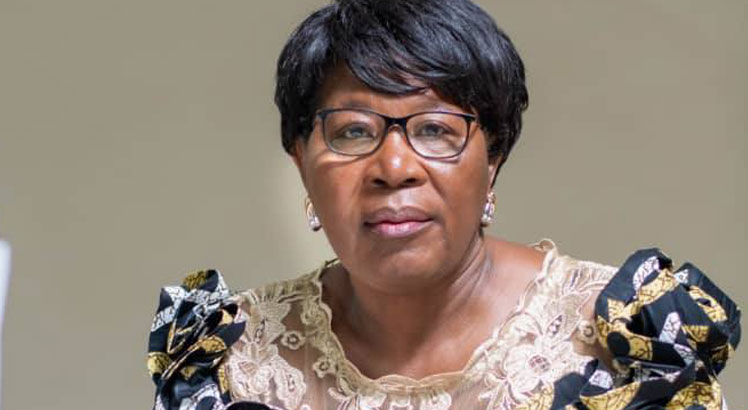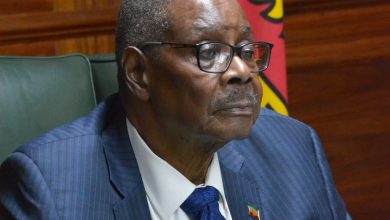Mutharika bounces back after 56% victory in poll
Former president Peter Mutharika has pulled off one of history’s greatest political comebacks, winning the presidency from outgoing President Lazarus Chakwera who dislodged him in 2020.
Announcing the official results in Lilongwe last night, Malawi Electoral Commission (MEC) chairperson Annabel Mtalimanja said Democratic Progressive Party (DPP) candidate Mutharika, fondly called APM by his supporters, reclaimed the presidency with 3 035 249 votes against 1 765 170 for Chakwera to secure 56.8 percent of the vote and cross the 50-percent-plus-one threshold required for an outright win.
Concluding what many have described as a transparent tallying process that withstood both disputes and scrutiny, she said there were 5 347 787 valid votes cast out of 5 502 982, representing 76.4 percent turnout. There were 7.2 million registered voters. Null and void votes totalled 155 225 or 2.8 percent.
Mtalimanja, a judge of the High Court of Malawi, stressed that the commission only facilitates the process by enabling voters to cast votes for leaders of their choice and does not favour any individual or political party but only respects and represents the will of the people as it is the voter who decides who wins the election.
She said: “The commission is not only responsible for preparing results, but also for ensuring that the results are credible and that all grievances and complaints are duly addressed. Now, after these issues have been resolved the Commission is ready to pronounce the winner.”
Initially, MEC indicated that at least 60.81 percent or 4 380 484 out of the 7 203 390 registered voters had cast their votes. However, yesterday Mtalimanja clarified that the 4.3 million was based on those verified through the electronic devices and the additional number represented voters manually identified.
She explained that MEC reviewed results from all 36 councils, including quarantined tallies from Ntcheu and Mangochi Municipality where disputes were ultimately resolved.

DPP’s second political comeback—its first being in 2014 when it swept away Joyce Banda’s People’s Party after two years in opposition following the death of its founding president Bingu wa Mutharika—was a national sweep, stunning in its breadth and depth, cutting deep into the Central Region traditional bastion of Malawi Congress Party (MCP) and redrawing the nation’s political map.
The now President-elect’s blue cyclone was as devastating in the Northern Region as it was in the Eastern and Southern regions.
The broad voter endorsement has left the former law professor with a decisive governing mandate and political capital he can leverage to achieve legacy-defining changes to public policy and legislation if he can put away “the childish things” of his previous administration such as the ‘Ana A Dad’ culture that bred impunity.
Reinford Mwangonde, a governance expert, said in an interview last night that DPP and Mutharika should seize the opportunity that the new political capital presents to push through an expansive people-centred agenda.
However, the former director of governance in the Office of the President and Cabinet, acknowledged that the new administration will face serious obstructionism in the re-configured Parliament.
“DPP will require the support of willing MPs to support a progressive agenda in Parliament considering that they do not have a majority. Malawians have en-masse voted for DPP at presidential level, but for MPs, they went local and that tells you that there is an emerging political maturity in the Malawian body politic,” he said.
He urged independent and opposition MPs to respect the mandate that Malawians have handed to APM by supporting his policy and economic agenda without necessarily abandoning their watchdog role, including holding the administration accountable.
During the campaign, APM, derided as being too old for the campaign and the rigours of the presidency especially by taxpayer-funded Malawi Broadcasting Corporation, stuck to one message in the few times he went out to campaign: how Malawians’ suffering had worsened ever since they voted him out of office five years ago.
He said: “Mwandisowa? Ndinakuuzani kuti mudzakhaula. Mwaona kuti mwakhaula? [I warned you that you will suffer under Chakwera, haven’t you suffered?]”.
Mutharika kept pounding this message at a time the Chakwera administration was presiding over a galloping cost of living that threw millions into abject poverty; shortages of fuel, fertiliser, foreign currency and food.
Given that Malawi is an agrarian society with high dependence on subsistence farming yet farm inputs went through the roof over the past five years, it was inevitable that people would be angry and, according to Mwangonde, APM inflamed and profited from the rage.
“The cost of fertiliser was very high contrary to the promises made by Chakwera. To make matters worse, most Malawians in rural areas could not find maize and when they found it, it was not affordable. The right to food is fundamental for Malawians and anyone who messes with it as Chakwera did, cannot be forgiven and we have seen the results,” he said.
Mtalimanja’s declaration of APM’s triumph came barely seven hours after Chakwera conceded defeat in a televised address, acknowledging that Mutharika had secured an overwhelming lead.
The September 16 presidential poll featured a record 17 candidates.
In the election, UTM Party presidential candidate Dalitso Kabambe finished third with 211 413 votes or four percent, followed by former president Joyce Banda of the People’s Party with 86 106 votes and UDF’s Atupele Muluzi amassed 102 744 votes.
Political Science Association secretary general Makhumbo Munthali said the outcome showed a maturing democracy in which voters punished perceived incompetence at the ballot box.
“The elections show that our democracy is progressing where the citizens are empowered to punish incompetence through the ballot,” he observed.
He noted that while Mutharika had long been a frontrunner, the decisive first-round win reflected a protest vote against Chakwera’s regime and its poor economic performance.
Looking ahead, Munthali warned that Mutharika faces an urgent task to deliver on governance and unity.
Civil society leaders struck a similar tone of vigilance. Michael Kaiyatsa, executive director of the Centre for Human Rights and Rehabilitation, said they would not hesitate to confront any return of arrogance or impunity.
“Civil society will not sit back. If arrogance and impunity return, we will confront them head-on through advocacy, dialogue and, when necessary, public mobilisation. Our job is to hold those in power accountable, no matter who occupies State House,” he said.
Pre-election surveys by Institute of Public Opinion and Research gave Mutharika a 43 percent chance to win while Chakwera had 26 percent and Kabambe six percent.





